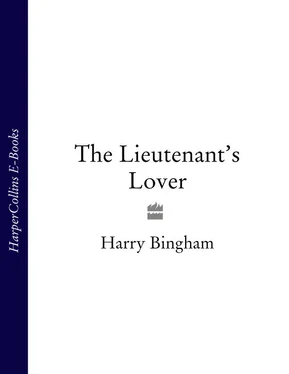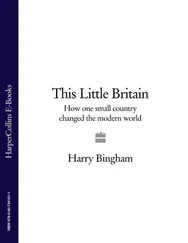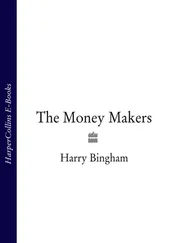The man, Rodyon Leonidovich Kornikov, was Tonya’s cousin and a rising star in the new Bolshevik administration. He fixed his eyes on her, then directed his glance deliberately across the room, before bringing it back to her. He never stopped speaking for a second. His sentences came out perfectly, without mistake or hesitation. Tonya looked over to where the man had indicated. Pavel was there, his eyes shining unhealthily, his coat unbuttoned like the man on the platform. Tonya pushed her way across to him.
‘Pavel! You’ll freeze.’
The boy, a fourteen-year-old, began buttoning up almost as soon as he saw his sister; and he let her adjust his hat and scarf. But he still kept his eyes on the platform where Rodyon was winding up.
Tonya turned her attention from Pavel to her cousin. Rodyon spoke of the necessity of establishing revolutionary principles ‘from the first winter on; from the worst slum outwards’. The broken nose in his perfect face served to draw attention to his handsomeness, adding something mesmerising to his features. He finished speaking, to a scattering of applause.
Pavel turned to his sister.
‘Wasn’t he good? When I’m older—’
‘When you’re older you can go out on your own. Right now, you need to stay warm.’
Pavel shrugged. His eyes still shone as though fevered. Rodyon barged through the crowd towards them, stopping in front of Tonya.
‘Comrade!’
‘Rodya! It’s all very well for you to march about like you don’t feel the cold. You should think about Pavel. He copies you.’
‘He will be a good citizen one day. Enthusiastic.’
‘If he doesn’t catch his death first.’
Rodyon smiled. He had perfect teeth, white and even.
‘Well, comrade,’ he said to Pavel. ‘Your sister’s right. You should stay warm too.’
The boy nodded.
‘Are you all right for things? Food and everything?’
‘We don’t have any wood. We’ll have nothing at all to burn by the end of the week.’
‘You have your allocation of course?’
‘If it comes. Last time there was nothing.’
‘That can’t be helped. You can’t rebuild a house without knocking down a wall or two.’
‘They’re not walls. They’re your precious comrade citizens.’
Rodyon smiled. He was an important man, the Housing Commissar of the Petrograd Soviet.
‘I can’t help you. Everyone’s in the same situation.’
Tonya shrugged. She hadn’t actually asked for help, but didn’t say so.
‘But if you want… Uncle Kiryl is still a thief, I suppose?’
Tonya nodded. Her father, Kiryl, worked on the railway and stole coal. An accomplice threw shovelfuls off the train as it entered the station. Kiryl collected the bits up in a sack and sold it on the black market. ‘He only gets vodka and tobacco. He wouldn’t even think of bringing the coal home.’
‘But still, you have things to trade.’
‘Yes.’
‘Then come with me on my tour of inspection tomorrow. You never know what you’ll find in these places once owned by the bourgeois.’
‘Thank you.’
He shook his head. ‘No thanks and no favours. When we have things running properly, you won’t be short of logs.’
He held Tonya’s eyes one last time. Rodyon was a long-time Bolshevik, with two spells in prison to his credit. His nose had been broken in a brawl with police and he was rising fast under the new regime. He had also, for the last two years, been paying careful court to Tonya. He had been constant and, in his way, generous, but Tonya never quite knew whether he was sincere. She wasn’t sure if she was his only girl, or if Rodyon would ever lose his heart to a woman. He seemed too self-possessed for that, too important.
She felt suddenly uncomfortable with him and looked away. But logs were logs, and if Rodyon could help her get some, then she would certainly do as he suggested.
‘Till tomorrow then,’ she said.
Misha made changes.
He made them fast, over the tears and protests of his mother and the servants. He began with the barricade at the mouth of the corridor.
‘It has to come down. Now. You think the red militias will be stopped by a chaise longue and a couple of armchairs? Nonsense. It has to come down. Vitaly, come here. I want you to dismantle this thing. That horrible old wardrobe is no good for anything. We can use it for firewood. Those other pieces you can share out among the others.
‘Next the windows. They’re hopeless. They need fixing properly. We don’t have any putty, of course. But how do you make putty? It’s chalk and oil, isn’t it? Linseed oil. I saw chalk in Yevgeny’s room. We’ll use that. Seraphima, do you know where we can get linseed oil? If we can’t get the oil, ordinary flax seeds will do. We can press them for oil. And in the meantime, curtains.
Do we have any fabric? No? Then use the hanging in mother’s room—’
‘The tapestry, Misha! No! It’s French, you know. Your grandmother—’
‘It’s thick and it’s heavy. It’ll do. Use the carpet too if you have to.’
And on it went.
The fireplaces were useless, so Misha stole some empty oil cans and turned them into stoves. He dismissed the servants. He exchanged the ebony chest for a sackful of millet flour, which would see them through winter. He made an inventory of their remaining valuables and concealed them beneath the floorboards.
But problems remained.
Firewood was the worst. They had terribly little, and decent firewood seemed almost impossible to obtain. And the next thing was his mother. She couldn’t adjust to the new conditions. She was always sick with one thing or another. It wasn’t just physical illness, it was a sickness that penetrated her soul. Misha was certain that if he couldn’t find a way to get her into a place of safety, then she wouldn’t survive. Yevgeny too was having his childhood stolen. It seemed clear that the best thing for all of them was to escape Russia, to make their way to Switzerland to join Natasha and Raisa there. But how to do that, with no money, no friends, no help …?
It was as he was thinking about that precise problem one evening that inspiration came to him.
He had gone, as he had done often enough already, over to the glass cabinet and taken out a bundle of papers: his father’s papers that his mother had managed to salvage. He turned the papers in his hand. Although only a few months old, they seemed as ancient as Egyptian papyrus. Stock certificates. Title deeds. Bank statements. Holdings of land. Everything represented by those papers had been swept away, almost literally overnight. On the top of the pile, there was a coloured picture postcard of General Kutuzov, the victor of the Battle of Borodino a hundred years earlier and a particular hero of Misha’s father. It was odd seeing the card. It was almost as though these stock certificates and the struggle against Napoleon both existed in the same far distant past.
But as well as certificates of ownership, the bundle contained letters from lawyers, accountants, brokers. And a persistent theme ran through them. From about February 1917, his father seemed to have started selling assets. Stocks, bonds, land, anything. There were no huge sales. The country was at war with Germany and Austria, after all. It would have been impossible to sell up completely, even if he had wanted to. But there was a steady stream of sales and yet no evidence from the bank statements that his savings accounts had increased by even a rouble. And yet there were hundreds of thousands of roubles involved. Though Misha had reviewed the papers a dozen times already, he was struck by a sudden thought.
‘Mother? These papers. Where did you get them?’
‘Oh, your father’s study of course. Where else?’
Читать дальше












